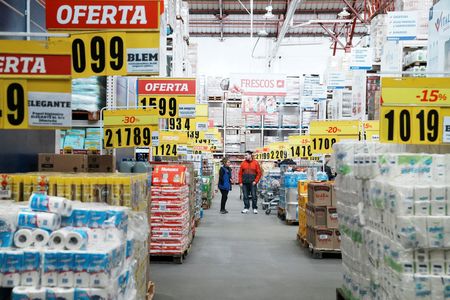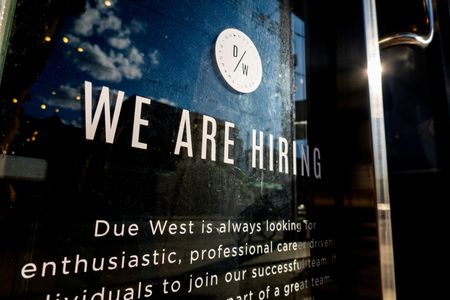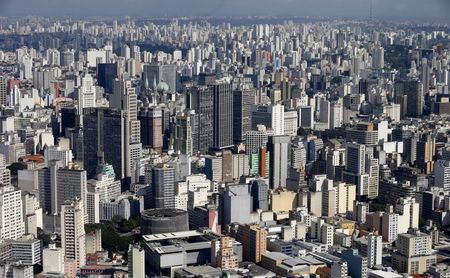By Hernan Nessi and Noelle Harff
BUENOS AIRES (Reuters) – Argentina’s monthly inflation rate is expected to come in at 4.9% in May, according to a Reuters poll of analysts published on Tuesday, which would be the slowest rise since the end of 2022 amid a major austerity drive by President Javier Milei.
The data, if confirmed, would be a big win for libertarian Milei, who has made inflation-busting a key focus since taking office in December during a major economic crisis.
Argentina’s annual inflation, near 300%, is the highest in the world.
Milei, an economist and former pundit, has cut public spending in an attempt to avoid hyperinflation and has pledged a zero fiscal deficit policy, boosting markets and investor sentiment even as the real economy has creaked.
The INDEC statistics agency is scheduled to release the official data on Thursday.
“Core inflation in May saw a decline compared to the previous month,” said Lautaro Moschet, economist at the Libertad y Progreso Foundation.
“This trend suggests that, if maintained, the CPI (consumer price index) could stabilize in a range of 4% to 5% in the coming months.”
Milei’s government has looked to double down on austerity and overturn years of fiscal deficits, an approach that has squeezed Argentines hard, but helped rein in prices faster than some analysts had expected.
“Inflation dropped to practically half the rate compared to April,” Economy Minister Luis Caputo said at an event on Tuesday, referring to April’s rate of 8.8% and signaling that the May number would come in below 5%.
“For those who said we couldn’t get it below 7%, well, the (new May) number starts with a 4.”
The 23 analysts polled by Reuters estimated a monthly CPI rise in May ranging from 4.3% to 7.1%.
Alejandro Giacoia, economist at consultancy Econviews, said food inflation has slowed markedly, which is important given its weight in the wider inflation basket. The government had also delayed some planned price hikes to utilities and transport.
“The delay of regulated increases that were ordered also helps.
Logically this measure can help on the inflation side but it is not without a cost from a fiscal point of view,” Giacoia said.
(Reporting by Hernan Nessi and Noelle Harff; Editing by Rod Nickel)










